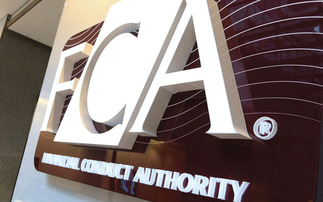Banks would reap the biggest rewards from a return to advice paid for by commission, advisers have said, as the highstreet giants also eye profits from robo-advice.
Financial advisers largely opposed a return to commission, and argued greater investment in automated 'robo-advice' was a better solution to increasing public access to advice.
However a report today revealed that several big banks including Lloyds and The Royal Bank of Scotland are preparing to offer fee-based robo-advice.
Allowing banks to work on a commission model while pumping money into robo-advice services could put advisers once again under pressure from all sides from the highstreet giants.
Past mis-deeds
Advice paid for by a commission attached financial products was banned in 2012 under the Retail Distribution Review (RDR), after the regulator ruled it created incentives to mis-sell to the public.
But acting head of the Financial Conduct Authority (FCA) Tracey McDermott told BBC Radio 4 earlier this month that the regulator was considering all the available options to get more people to access some form of financial advice, including reintroducing commission.
Advisers - many of whom were forced to overhaul their business models from commission to fee-paying as a result of the RDR - are opposed to the move.
Banks that were among the most at fault for widespread mis-selling and unsuitable advice would benefit most from the move, they said.
"This reintroduction would benefit the banks. They offered the sort of basic advice in the past and will be step into the market again. My general view is that the banks have been let off their past mis-deeds, and this will be another measure that overlooks that and helps them make more money," David Finan at Jardine Finan said.
"A better way of managing the problem would be for the government to limit the amount it spends on pensions guidance and provide vouchers redeemable against IFA advice."
Founder of Churchhouse Financial Planning, Keith Churchhouse said a re-introduction of commission by banks may not even help the lower value mass market that the government and the FCA are trying to reach.
"I expect commission will be reintroduced in some form, but it will be expensive - banks will only introduce it at a high level. The onus on transparency will mean that clients will be able to compare the commission charged by the banks with lower cost digital services such as our own," he said.
Adviser at Green Sky Wealth Paul Holiday said a return to commission "will fly in the face of treating customers fairly".
"Commission encourages vague costing, consumers focus less on what is being paid when its buried" he said.
Robo-banks
Holiday said robo-advice - where advice is partly or fully automated and offered mainly online - is a better solution.
"At least then costs are transparent and not buried into a single charge."
But banks are also looking to corner the robo-advice market.
The Financial Times today reported that several big banks including Lloyds and The Royal Bank of Scotland are preparing to offer fee-based robo-advice.
Banks' robo-advice services could be paid for by customers via a commission model if the payment method is reintroduced.
SimplyBiz joint managing director of Matt Timmins said he is in favour of a return to commission, and that it would benefit advisers.
"A commission-based regime backed by the government would definitely go some way to tackling the advice gap. Clients should be under no illusion about who is paying for the advice, but will draw comfort from the knowledge this is being costed into the product over its lifecycle."
He added: "A simplified advice regime, with lower regulatory costs and commission-bearing products, will have a huge impact on the number of advisers who want to become part of our sector. The pool of talent would be replenished with much needed ‘boots on the ground."














